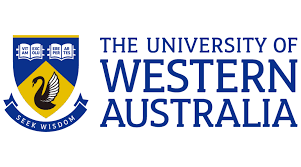University of Western Australia: Medical product development to target chronic conditions
Medical diagnostic products developed by The University of Western Australia and Proteomics International will be commercialised by a new business entity, which could help people with chronic disease as well as other conditions.
“This new diagnostic tool has the potential to enhance medical outcomes for many and may also have a positive impact in the sporting world.”
UWA Deputy Vice-Chancellor (Research) Anna Nowak
Proteomics International Laboratories announced the spin-off of the independent company OxiDx, which will focus on developing products to measure oxidative stress.
Oxidative stress occurs when an excess generation of toxic molecules, often referred to as free radicals, overwhelm the body’s antioxidant defences.
Oxidative stress is evident in many chronic diseases and conditions and the technology has a number of target applications including chronic fatigue, muscular dystrophy, high-performance athletes and the horse racing industry.
Associate Professor Peter Arthur, from UWA’s School of Molecular Sciences, said the research group were excited their discoveries would be developed into practical technologies that would be useful to the community.
Business executive Ian Brown, who has been appointed executive chair of OxiDx, said the market needed a more sensitive identifier of oxidative stress.
“Solving this problem has far-reaching potential, from enabling companion diagnostic and personalised medicine strategies in multiple chronic medical conditions, to reducing injury across sports from triathlon to horse racing,” he said.
UWA Deputy Vice-Chancellor (Research) Anna Nowak said the University was proud to collaborate on products that would benefit people suffering chronic medical conditions.
“UWA’s pioneering research and development continues to have a positive impact in the community,” Professor Nowak said.
“This new diagnostic tool has the potential to enhance medical outcomes for many and may also have a positive impact in the sporting world.”
OxiDx will operate as a stand-alone entity — Proteomics International and its shareholders will own 66 per cent of the company and UWA will own 33 per cent.
Proteomics International Managing Director Dr Richard Lipscombe said the structure of the company would help to bring the technology to market faster.

